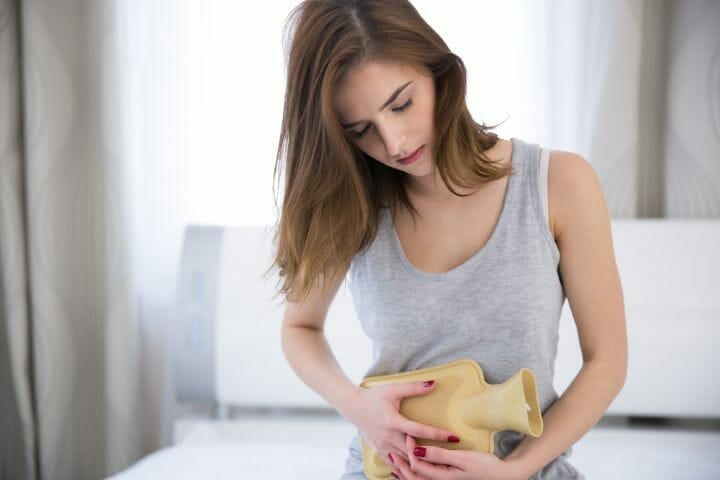
Endometriosis affects an estimated 1 in 10 women worldwide, causing chronic pain, infertility, and other serious symptoms. While there is currently no known cure for endometriosis, there are a number of treatments available to help manage symptoms, including medications, surgery, and lifestyle changes.
Understanding Endometriosis
What is Endometriosis?
Endometriosis is a condition in which tissue similar to the lining of the uterus grows outside of the womb, causing inflammation, irritation, and scarring throughout the pelvic region. This abnormal tissue growth can lead to a variety of symptoms, including severe menstrual cramps, chronic pelvic pain, painful intercourse, and even infertility.
Endometriosis affects approximately 10% of women of reproductive age and is often a challenging condition to diagnose. The exact cause of endometriosis is unknown, but it is thought to be related to hormonal imbalances, genetics, and environmental factors.
Symptoms and Diagnosis
Endometriosis is often misdiagnosed or untreated for years, as symptoms can vary widely between individuals. Women with endometriosis may experience heavy or irregular periods, painful bowel movements, fatigue, and depression, among other symptoms. It is important to note that some women with endometriosis may experience no symptoms at all.
Diagnosis of endometriosis typically requires a laparoscopic surgery, during which a doctor can visualize the extent of endometrial tissue growth and make a definitive diagnosis. This procedure involves making a small incision in the abdomen and inserting a thin, lighted instrument called a laparoscope. The laparoscope allows the doctor to see the pelvic organs and check for the presence of endometrial tissue outside the uterus.
Current Treatment Options
Although there is no cure for endometriosis, there are a number of treatments available to help manage symptoms and improve quality of life. Current treatment options include pain medications, hormonal therapy, and surgery, depending on the individual’s particular symptoms and overall health.
Pain medications, such as nonsteroidal anti-inflammatory drugs (NSAIDs), can help relieve the pain associated with endometriosis. Hormonal therapy, such as birth control pills, can help regulate the menstrual cycle and reduce the amount of endometrial tissue that grows outside the uterus. Surgery may be necessary to remove endometrial tissue and scar tissue that may be causing pain or infertility.
It is important to work closely with a healthcare provider to determine the best treatment plan for each individual case of endometriosis. In some cases, a combination of treatments may be necessary to effectively manage symptoms and improve quality of life.
The Role of Diet in Endometriosis
Endometriosis is a condition where the tissue that normally lines the inside of the uterus grows outside of it, causing pain and discomfort. While there is no definitive cure for endometriosis, research suggests that certain dietary changes may help to reduce inflammation, support hormone balance, and improve gut health, all of which can help to mitigate symptoms of endometriosis.
Endometriosis affects an estimated 1 in 10 women of reproductive age, and can cause a range of symptoms including pelvic pain, heavy periods, and infertility. While treatment options typically focus on managing symptoms, many women are interested in exploring dietary interventions that may help to reduce their symptoms and improve their quality of life.
Inflammation and Endometriosis
Endometriosis is thought to be driven in part by chronic inflammation throughout the body. Inflammatory foods like trans fats, sugar, and alcohol can worsen inflammation and trigger symptoms of endometriosis. In contrast, consuming anti-inflammatory foods like leafy greens, berries, and fatty fish may help to reduce inflammation and alleviate pain and discomfort.
Research has shown that a diet high in fruits, vegetables, whole grains, and lean protein sources can help to reduce inflammation in the body. In addition, certain spices like turmeric and ginger have been shown to have anti-inflammatory properties, and may be beneficial for women with endometriosis.
Hormone Balance and Diet
Endometriosis is a hormone-dependent condition, with many of its symptoms triggered by fluctuations in estrogen and progesterone. To help regulate hormone levels, women with endometriosis may benefit from foods that support hormone balance, such as whole grains, legumes, and cruciferous vegetables like broccoli and cauliflower.
In addition, some women with endometriosis may benefit from reducing their intake of dairy products, which can contain high levels of estrogen and may contribute to hormonal imbalances. Choosing plant-based sources of protein, like beans and lentils, can be a good alternative for women looking to reduce their dairy intake.

Gut Health and Endometriosis
Emerging evidence suggests that there may be a link between endometriosis and gut health. Some women with endometriosis report experiencing symptoms of bloating, constipation, and other digestive issues alongside their pelvic symptoms.
Research has shown that a diet high in fiber can help to support healthy gut function and reduce inflammation throughout the body. Including fiber-rich foods like fruits, vegetables, and whole grains can be beneficial for women with endometriosis, as can consuming probiotic-rich foods like yogurt and kefir.
While dietary changes may not be a definitive cure for endometriosis, they can be a valuable tool for managing symptoms and improving overall health and well-being.
Foods to Include in an Endometriosis-Friendly Diet
Endometriosis is a painful condition that affects many women. While there is no cure for endometriosis, there are certain foods that may help to alleviate symptoms and improve overall health. In this article, we will explore some of the best foods to include in an endometriosis-friendly diet.
Anti-inflammatory Foods
As mentioned, consuming anti-inflammatory foods can help reduce inflammation throughout the body. This is important for women with endometriosis, as inflammation can exacerbate symptoms. Some examples of anti-inflammatory foods include:
- Dark leafy greens like spinach and kale: These greens are packed with vitamins and minerals, as well as anti-inflammatory compounds like flavonoids and carotenoids.
- Berries like strawberries and blueberries: Berries are rich in antioxidants, which can help to reduce inflammation and protect cells from damage.
- Fatty fish like salmon and tuna: These fish are high in omega-3 fatty acids, which have been shown to have anti-inflammatory effects.
- Extra-virgin olive oil: This oil is rich in monounsaturated fats and antioxidants, both of which can help to reduce inflammation.
- Nuts and seeds like almonds and chia seeds: These foods are high in healthy fats and anti-inflammatory compounds.
High-Fiber Foods
Fiber is important for healthy digestion and gut function, and may also help to reduce inflammation throughout the body. Some examples of high-fiber foods include:
- Fruits like apples, pears, and raspberries: These fruits are high in soluble fiber, which can help to regulate digestion and reduce inflammation.
- Veggies like carrots, broccoli, and cauliflower: These vegetables are rich in fiber and other nutrients that can support overall health.
- Whole grains like brown rice, quinoa, and oats: These grains are high in fiber and other nutrients, and may help to regulate digestion and reduce inflammation.
- Legumes like beans, lentils, and chickpeas: These foods are high in both fiber and protein, and can help to support overall health.
Omega-3 Fatty Acids
Omega-3 fatty acids are a type of healthy fat found in many foods, including fatty fish, nuts, and seeds. Research suggests that omega-3s may help to reduce inflammation and alleviate pain associated with endometriosis. Some examples of omega-3-rich foods include:
- Fatty fish like salmon, mackerel, and sardines: These fish are high in omega-3s and other important nutrients.
- Flaxseed and chia seeds: These seeds are high in alpha-linolenic acid, a type of omega-3 fatty acid.
- Walnuts and almonds: These nuts are high in omega-3s and other healthy fats.
Antioxidant-Rich Foods
Antioxidants are compounds found in many foods that help to protect cells from damage caused by free radicals. They may also help to reduce inflammation and improve overall health. Some examples of antioxidant-rich foods include:
- Colorful fruits and vegetables like pomegranates, berries, and leafy greens: These foods are high in antioxidants like vitamin C and beta-carotene.
- Dark chocolate: Dark chocolate is rich in flavonoids, which are potent antioxidants.
- Green tea: Green tea is high in antioxidants called catechins, which may help to reduce inflammation and improve overall health.
- Spices like turmeric and cinnamon: These spices are rich in antioxidants and may have anti-inflammatory effects.
By incorporating these foods into your diet, you may be able to reduce inflammation, alleviate pain, and improve overall health. However, it is important to remember that every woman’s experience with endometriosis is different, and what works for one person may not work for another. It is always a good idea to work with a healthcare provider to develop a personalized treatment plan.
Foods to Avoid with Endometriosis
Processed Foods and Added Sugars
Endometriosis is a painful condition that affects many women. While there is no cure, there are steps that can be taken to manage symptoms. One of the most effective ways to manage endometriosis is through diet. Processed foods are often high in sugar, refined grains, and unhealthy fats, all of which can worsen inflammation and trigger endometriosis symptoms. Some examples of foods to avoid include:
- Soda and other sugary drinks
- Candy and other sweets
- Processed meats like bacon and sausage
- Fast food and other fried foods
Instead of reaching for these unhealthy options, try incorporating more whole foods into your diet. Fresh fruits and vegetables, lean proteins, and whole grains can help to reduce inflammation and improve overall health.
Red Meat and Saturated Fats
Red meat and other high-fat animal products may exacerbate inflammation and trigger endometriosis symptoms. Consider reducing your intake or choosing leaner, plant-based protein sources instead. Some examples of foods to avoid include:
- Red meat like beef and lamb
- Full-fat dairy products like cheese and butter
- Egg yolks
- Processed snack foods like chips and crackers
While it may be difficult to give up these foods, incorporating more plant-based options like tofu, tempeh, and legumes can provide the protein and nutrients your body needs without exacerbating endometriosis symptoms.
Gluten and Dairy
Some women with endometriosis report experiencing digestive symptoms like bloating and diarrhea when consuming gluten or dairy. If you suspect that you may be sensitive to these foods, consider eliminating them from your diet temporarily or speaking with a healthcare provider. Some examples of foods to avoid include:
- Wheat and other gluten-containing grains
- Cow’s milk and other dairy products like yogurt and ice cream
- Butter and cream sauces
- Creamy desserts like cheesecake and pudding
While it may be difficult to give up these foods, there are many alternatives available. Non-dairy milks like almond or oat milk can be used in place of cow’s milk, and gluten-free grains like quinoa and rice can be used in place of wheat.
Alcohol and Caffeine
Both alcohol and caffeine can worsen inflammation and trigger endometriosis symptoms. Consider reducing your intake or switching to healthier alternatives like tea or sparkling water. Some examples of foods to avoid include:
- Beer, wine, and spirits
- Coffee and other caffeinated beverages
- Soda and other sugary drinks
While it may be difficult to give up these beverages, switching to herbal tea or sparkling water can provide a refreshing alternative. Additionally, reducing your alcohol and caffeine intake can help to improve overall health and reduce inflammation.
If you’re living with endometriosis, making dietary changes may feel overwhelming at first. Remember to start small, focus on whole, nourishing foods, and listen to your body’s signals. With time and practice, you may find that these simple dietary adjustments help to alleviate symptoms and improve overall quality of life.
It’s important to note that while dietary changes can be helpful in managing endometriosis symptoms, they should not be used as a substitute for medical treatment. If you are experiencing severe pain or other symptoms, it’s important to speak with a healthcare provider to determine the best course of treatment for your individual needs.

